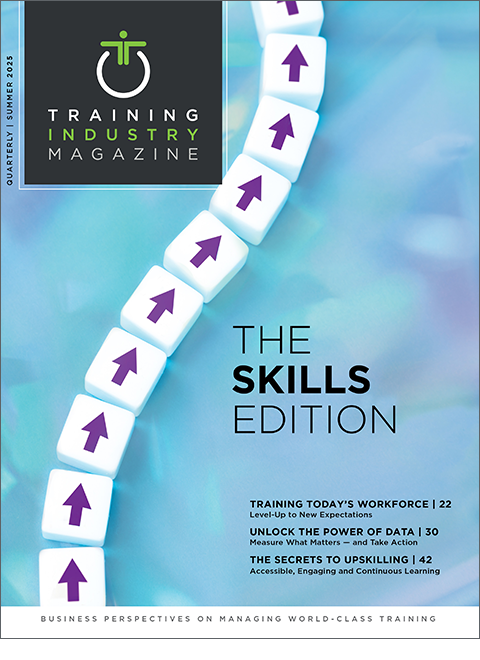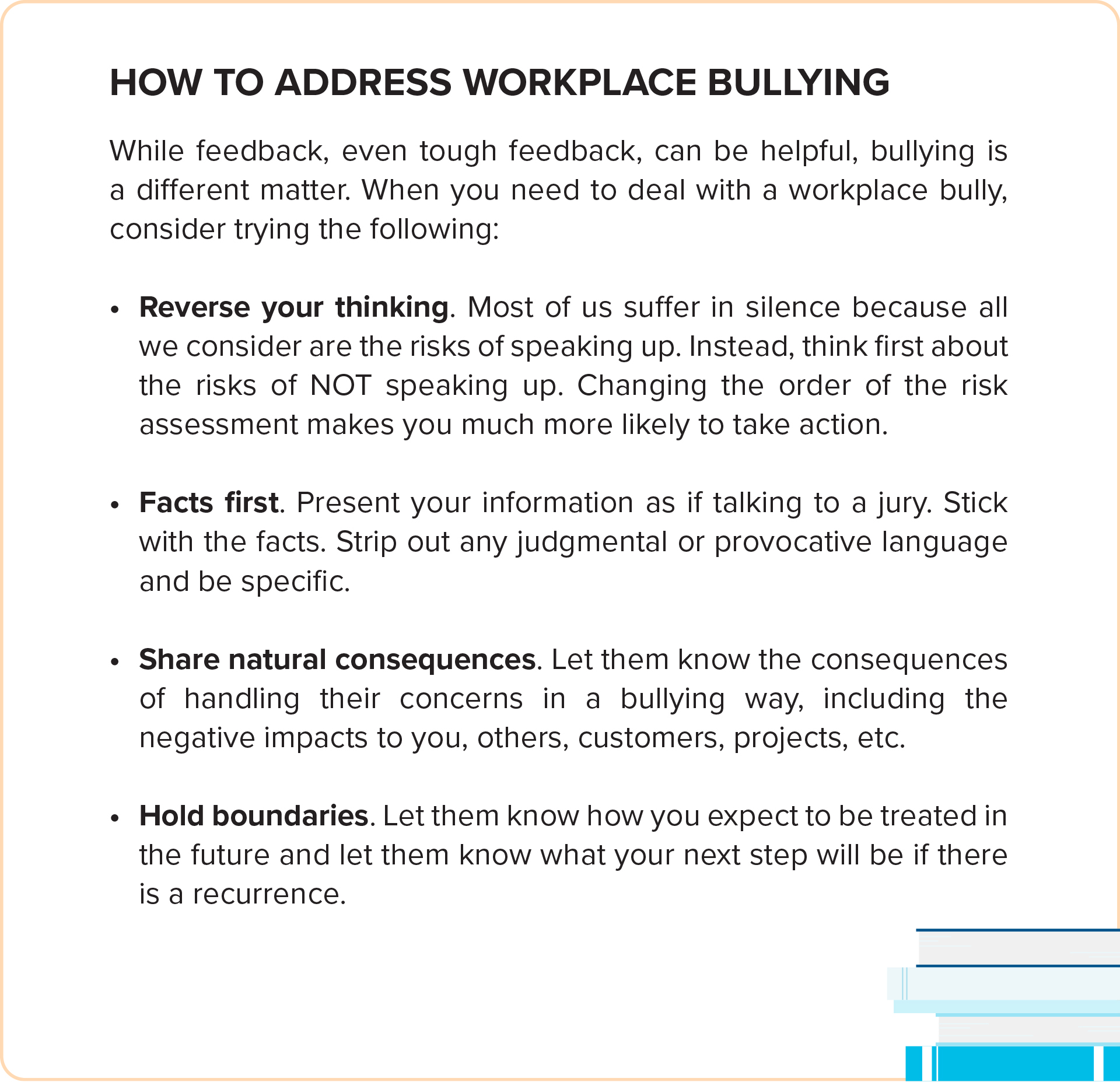
Published in Summer 2025
Feedback, criticism, critique — whatever it may be called, receiving an assessment of yourself can be tough to hear. Negative feedback can feel like having a mirror held up to all your deepest insecurities.
Does feedback get any easier to hear when it’s said with a smile, kind words or a gentle tone?
In a recent study, “How to Handle Tough Feedback,” my colleagues and I sought to understand whether people would respond differently to feedback given harshly versus nicely. On the harsh end of the spectrum, some of the comments that respondents reported receiving included:
- “You are an evil person. You are a thief. You are scum.”
- “Think about leaving — I need warriors not wimps.”
- “You look great on a resume, but not so great on the job.”
Shockingly, while 90% of respondents said they were surprised to receive such harsh feedback, only 15% reacted with feelings of anger or resentment. The most common response was either silence or forced politeness. Harsh feedback simply shut people down, at least for a moment.
What if feedback is given nicely? Would people welcome feedback if it were delivered in a more compassionate way? The answer is no — our study found that no matter how well the feedback was delivered, it still left a painful and lasting impression. It was still hard to hear.
Now, some of the comments above veered into bullying territory. There is no room for bullying in the workplace, or any place for that matter. But negative feedback — even when work appropriate and delivered nicely — can sting. Any time another person holds us accountable, we are likely to bristle to some degree.
But we must remember that feedback is a gift. Without the ability to share it freely and receive it openly, emotions can get buried, growth may stagnate and relationships risk becoming increasingly fragile. If you want to be more receptive to truthful feedback at work, regardless of how it’s delivered, consider these tips:
Own Your Safety
Safety is an essential psychological need. Whenever we believe our safety is threatened, we respond with fight, flight or freeze. Of course, if you find yourself in physical danger, get out of the situation. But when someone is giving us work-appropriate feedback and holding us accountable, we are completely safe. It is our pride that’s at risk, not our safety.
When it comes to psychological safety, we often assume others are responsible for it, and the default reaction is to take offense. But remember — you’re in charge of your own feelings. You’re responsible for your own psychological safety.
As our research highlighted, it doesn’t really matter if the person giving you feedback is doing so nicely or harshly. It’s your reaction to it that matters. Rather than shutting down or taking offense, look for the truth in the feedback. The motive of others holding you accountable is irrelevant. How you learn and grow from it is what matters.

Own Your Worth
Another essential psychological need is a sense of self-worth. Too often we derive a sense of self-worth from external sources — jobs, salary, social standing, material possessions and so on. Then, when someone reveals our shortcomings, the house of cards known as our self-worth crumbles.
Instead, develop a sense of self-worth built on self-respect. One way to improve self-respect is to develop good values and live them. You can detach the words, however they were delivered, from the truth you need to become better. It’s not easy, but it’s vitally important.
In addition to taking responsibility for your safety and sense of self-worth, consider going through the following steps to help better respond to feedback: think CURE.
Collect
If harsh feedback catches you off guard, have a way to collect yourself. One good way is to breathe deeply and slowly. Pause to pay attention to how you are feeling — you may be hurt, scared, embarrassed or ashamed. Use this moment to remind yourself that you are safer than you think. Avoid rushing to judgment or action. Simply collect yourself and the feedback.
Understand
Next, listen. Ask questions. Ask for examples. Get curious. Detach yourself from what is being said as though it is being said about a third person. That will help you bypass the urge to evaluate what you’re hearing. You’ll stop worrying about whether it’s true or false. Instead, you’ll gain more information with which to understand where the person giving the feedback is coming from. Perhaps there are factors or points of view you haven’t considered before. Simply act like a good reporter trying to understand the story of an informant.
Recover
In some situations, it’s often best to simply exit the conversation. Explain that you want time to reflect and that you will respond later. Say something like, “It’s important to me that I get this right. I need some time. I’ll get back to you when I’m ready to respond.” Give yourself permission to feel and recover from the experience before evaluating what you heard. You don’t have to agree or disagree with the feedback in the moment. Take time to sincerely reflect and decide on your next actions.
Engage
Examine what you were told. If you’ve done a good job taking responsibility for your safety and worth, you’ll improve your natural reaction to feedback. Rather than poking holes in it, you’ll look for truth. Even if the feedback is 90% fluff and 10% substance, look for the substance. There is almost always at least a kernel of truth in what people are telling you. When you’re ready, engage with the person who shared the feedback and acknowledge what you heard, what you accept and what you’ll commit to do.
Strong relationships both inside and outside of work are often based on three things: truth, respect and connection. Ask yourself, are my work relationships lacking in truth? Are my colleagues and I unwilling and unable to share with each other how we honestly feel and what our real needs are? Use the advice above to foster more truth in your work relationships — truth you can use to reshape yourself for the better.